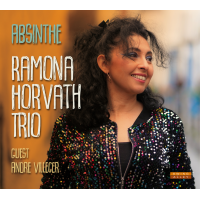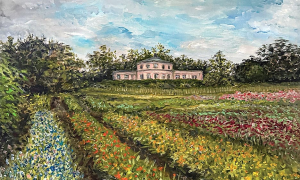
Esperanza Spalding releases her new album, Chamber Music Society, on Heads Up International tomorrow—August 17, 2010. To listen to clips of the album and receive a free mp3, visit the newly renovated www.esperanzaspalding.com. Here's what Nate Chinen from The New York Times has to say about Chamber Music Society:
Several tracks into her third album as a leader, Esperanza Spalding offers up “Really Very Small," an invention of hers arranged for standard rhythm section with a three-piece complement of strings. Her multitracked vocals appear first, in a waft of elfin ahs and ohs, before she starts a syncopated bass line, digging hard into a groove. The song, with its springy wordless melody and clockwork overlay of meters, comes across as a deft piece of work, current in its thinking and light on its feet. It speaks to the strictly musical side of her breakaway mainstream success, which of course is only part of the picture.
Since the 2008 release of “Esperanza" (Heads Up), Ms. Spalding has been the recipient of a truly unusual amount of goodwill. A smart, surefooted bassist and a frolicsome, irrepressible singer, she does her part to justify the acclaim. But her talent has been a good pretense for people who don't pay much attention to jazz to marvel at its bright new hope. Her music now comes burdened with expectations.
And “Chamber Music Society" is her calmly measured response. It's a steady, reined-in album—not Really Very Small, perhaps, but really just small enough. Its scale reflects well on Ms. Spalding, whose only struggle as a solo artist has been focus. “Esperanza" was a throw-everything-at-the-wall sort of record; here, aided by the intuitive producer-arranger Gil Goldstein, she's sticking to a central idea.
Several tracks into her third album as a leader, Esperanza Spalding offers up “Really Very Small," an invention of hers arranged for standard rhythm section with a three-piece complement of strings. Her multitracked vocals appear first, in a waft of elfin ahs and ohs, before she starts a syncopated bass line, digging hard into a groove. The song, with its springy wordless melody and clockwork overlay of meters, comes across as a deft piece of work, current in its thinking and light on its feet. It speaks to the strictly musical side of her breakaway mainstream success, which of course is only part of the picture.
Since the 2008 release of “Esperanza" (Heads Up), Ms. Spalding has been the recipient of a truly unusual amount of goodwill. A smart, surefooted bassist and a frolicsome, irrepressible singer, she does her part to justify the acclaim. But her talent has been a good pretense for people who don't pay much attention to jazz to marvel at its bright new hope. Her music now comes burdened with expectations.
And “Chamber Music Society" is her calmly measured response. It's a steady, reined-in album—not Really Very Small, perhaps, but really just small enough. Its scale reflects well on Ms. Spalding, whose only struggle as a solo artist has been focus. “Esperanza" was a throw-everything-at-the-wall sort of record; here, aided by the intuitive producer-arranger Gil Goldstein, she's sticking to a central idea.



























